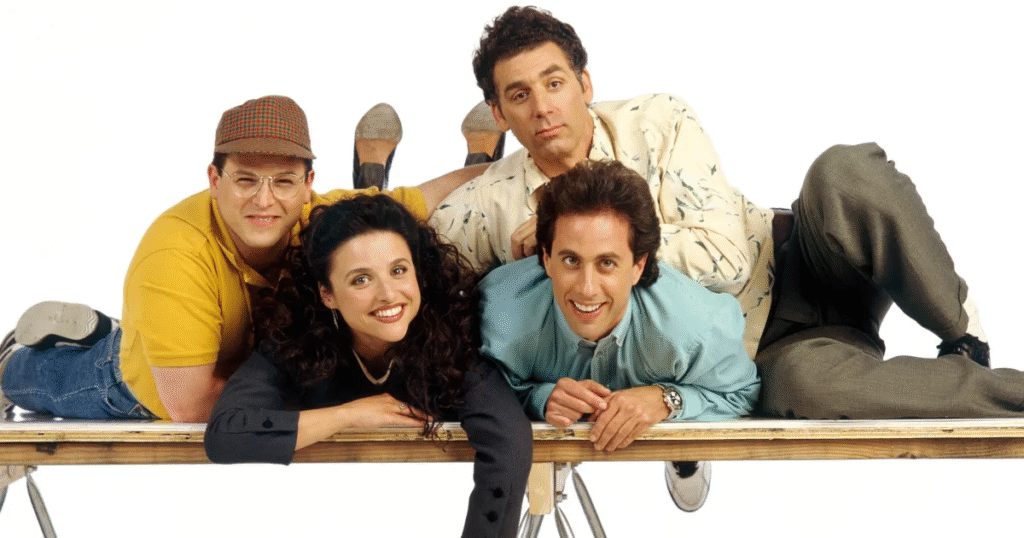Introduction
Seinfeld is one of the most iconic American television sitcoms of all time. Created by Larry David and Jerry Seinfeld, the show first aired on NBC from 1989 to 1998, spanning nine successful seasons. Often described as a “show about nothing,” it focused on the everyday lives of four friends living in New York City. Despite its simple premise, Seinfeld became a cultural phenomenon and influenced countless sitcoms that followed.
The Main Characters
The four central characters are:
- Jerry Seinfeld – A stand-up comedian who often finds himself in awkward social situations.
- George Costanza – Jerry’s best friend, known for his neurotic, self-absorbed personality.
- Elaine Benes – Jerry’s ex-girlfriend and close friend, famous for her independence and quirky behavior.
- Cosmo Kramer – The eccentric neighbor whose unusual schemes often create comedic chaos.
Each character brought a unique flavor to the show, making their interactions unpredictable and hilarious.
Unique Style and Humor
What made Seinfeld different from other sitcoms was its focus on everyday, relatable situations. The show avoided dramatic storylines or moral lessons, instead highlighting the humor in mundane events, such as waiting in line, dealing with annoying neighbors, or awkward social encounters. Its signature style included:
- Interweaving storylines that often converge in unexpected ways.
- Observational comedy, reflecting the quirks of human behavior.
- Catchphrases and memorable lines that remain part of pop culture today, like “Yada yada yada” and “No soup for you!”
Cultural Impact
Seinfeld left a lasting impact on television and culture. It introduced a new kind of humor that focused on irony, sarcasm, and everyday absurdities. The show received critical acclaim, winning numerous awards, including Emmys and Golden Globes. Its influence can be seen in modern sitcoms that emphasize character-driven humor over plot-driven stories.
Legacy
Even years after its finale in 1998, Seinfeld continues to entertain new generations through syndication and streaming platforms. It remains a reference point in pop culture and is widely regarded as one of the greatest TV shows ever made.
Conclusion
Seinfeld proved that television doesn’t need over-the-top drama to succeed. By focusing on the small, often overlooked details of everyday life, it created humor that is timeless, relatable, and endlessly quotable. Whether you’re a longtime fan or new to the series, Seinfeld is a must-watch show that set the standard for modern comedy.
